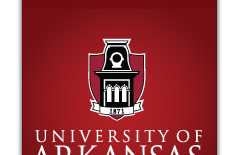Keywords
Arkansas, National School Lunch Program, NSLP, COVID, COVID-19, school meals, The Families First Coronavirus Response Act, FFCRA, The Coronavirus Aid Relief and Economic Security Act, CARES, school lunch, school breakfast
Document Type
Article
Abstract
Schools serve millions of students daily as one of the largest food distribution sites in the United States. However, more than 13.1 million children in the United States, and almost 150,000 in Arkansas, are food insecure. Before the COVID-19 pandemic, most Arkansas schools offered free and reduced lunch to students at or below the poverty line through participation in the National School Lunch Program (“NSLP”). During COVID-19, Congress passed The Families First Coronavirus Response Act (“FFCRA”) and The Coronavirus Aid, Relief, and Economic Security Act (“CARES”) (hereinafter “The Acts”). This legislation effectively eliminated food insecurity in participating American public schools, including many in Arkansas, as it provided free lunch to all students, regardless of household income. Now, as COVID-19 has largely subsided, Congress has eliminated the funding allowed by The Acts and many states, including Arkansas, have reverted to pre-COVID-19 funding mechanisms using the NSLP. The Arkansas General Assembly must utilize its current tax surplus, or alternatively increase taxes to fund a state-wide subsidy to the NSLP.
Recommended Citation
Bryant, A. (2024). Free For All: Proposing Legislation to Eliminate Food Insecurity in Arkansas Public Schools. Journal of Food Law & Policy, 19(2). Retrieved from https://scholarworks.uark.edu/jflp/vol19/iss2/7
Included in
Education Commons, Food and Drug Law Commons, Public Health Commons

